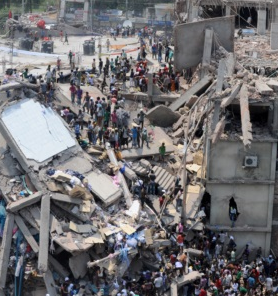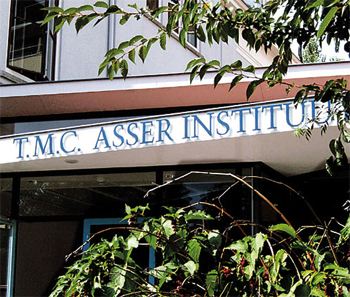
The Rana Plaza Collapse
The collapse of the Rana Plaza building on 24 April 2013, left at least 1134 people dead. This tragedy triggers a tremor or compassion throughout the world, but also a widespread feeling of guilt. Bangladesh is the world’s second largest garment producer and account for almost 80% of Bangladesh’s total export revenue. When Bangladeshi garment and textile workers are being hospitalized or their health and safety are jeopardized, it is often in order to produce a daily wardrobe for the European or American market. Thus, while in a globalizing context, it is easy to forget that one’s own responsibility is that we will never measure in person.
The sheer scope of the Rana Plaza disaster, this responsibility brutally and painfully visible. This widespread feeling of guilt has been about the past five years. Mapping and reviewing how these initiatives operate in practice is essential to assess whether they are successful in remedying (at least partially) the shortcomings that have led to the death of so many people.
Steps Forward
To this end, the conference brings together key (trans) national policy-makers and civil society members involved in the aftermath of the Rana Plaza collapse. It is designed as a platform for practitioners and academics to ensure that it does not reoccur.
Our first panel will be legally accountable for the harm caused by the collapse. The second panel will discuss the transnational (public and private) regulatory responses to the tragedy, addressing health and safety in the Bangladeshi garment industry, and other aspects of the value chain. Finally, the last panel will look at the (soft and hard) regulatory developments at the national level in response to the Rana Plaza collapse.
Confirmed Speakers:
- Tanja Gonggrijp – Management Team of the Directorate for Economic Sustainable Development, Ministry of Foreign Affairs of the Netherlands;
- Ben Vanpeperstraete – Lobby and Advocacy Coordinator, Clean Clothes Campaign;
- Sara Hossain – Honorary Executive Director, Bangladesh Legal Aid and Services Trust (BLAST);
- Dr Paul Verbruggen – Assistant Professor of Global and Comparative Private Law, Tilburg University;
- Joris Oldenziel – Deputy Director for Implementation, The Bangladesh Accord on Fire and Building Safety;
- Prof.Juliane Reinecke – Professor of International Management & Sustainability, King’s College London;
- HE Sheikh Mohammed Belal – Ambassador of the People’s Republic of Bangladesh to the Netherlands;
- Riaz Hamidullah – High Commissioner for the People’s Republic of Bangladesh to Sri Lanka;
- Mr. Md. Siddiqur Rahman – President, Bangladesh Garment Manufacturers & Exporters Association;
- Nayla Ajaltouni – Coordinator of le collectif éthique sur l’étiquette
- Nikos Zaimis – Representative of the European Commission
- Jef Wintermans – Coordinator of the Dutch Agreement on Sustainable Garments and Textiles at the Dutch Social Economic Council (SER)
** This event is supported by the Embassy of Bangladesh at The Hague ***



